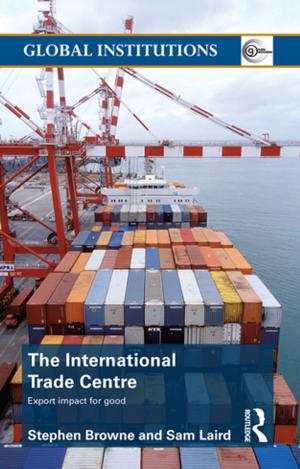Transnationalism in the Balkans
Business & Finance, Economics, Foreign Exchange, Nonfiction, Social & Cultural Studies, Political Science, International, International Security| Author: | ISBN: | 9781317968535 | |
| Publisher: | Taylor and Francis | Publication: | October 18, 2013 |
| Imprint: | Routledge | Language: | English |
| Author: | |
| ISBN: | 9781317968535 |
| Publisher: | Taylor and Francis |
| Publication: | October 18, 2013 |
| Imprint: | Routledge |
| Language: | English |
After a decade of exclusive nationalism, violence and isolation of the 1990s, the Balkans has seen the emergence of transnational links between the former ethnic foes. Do these new cross-border links herald the era of inter-ethnic reconciliation in place of the politics of ethnic exclusion? Are they a proof of a successful transition from authoritarianism and war to democracy and peace? Drawing on substantial empirical research by regional specialists, Transnationalism in the Balkans provides a sobering insight into the nature of cross-border links in the region and their implications. Several of the authors show how transnational connections in the context of weak states and new borders in the region have been used by transnational actors – be it in the politics, economics and culture -- to undermine a democratic consolidation and keep the practice of exclusive ethnic politics and identities alive. These findings make a strong case to go beyond the region and put forth a critical argument for rethinking the theories of transition to democracy in the post-Communist and post-conflict setting to incorporate a dimension of globalisation.
This book was previously published as a special issue of Ethnopolitics.
After a decade of exclusive nationalism, violence and isolation of the 1990s, the Balkans has seen the emergence of transnational links between the former ethnic foes. Do these new cross-border links herald the era of inter-ethnic reconciliation in place of the politics of ethnic exclusion? Are they a proof of a successful transition from authoritarianism and war to democracy and peace? Drawing on substantial empirical research by regional specialists, Transnationalism in the Balkans provides a sobering insight into the nature of cross-border links in the region and their implications. Several of the authors show how transnational connections in the context of weak states and new borders in the region have been used by transnational actors – be it in the politics, economics and culture -- to undermine a democratic consolidation and keep the practice of exclusive ethnic politics and identities alive. These findings make a strong case to go beyond the region and put forth a critical argument for rethinking the theories of transition to democracy in the post-Communist and post-conflict setting to incorporate a dimension of globalisation.
This book was previously published as a special issue of Ethnopolitics.















